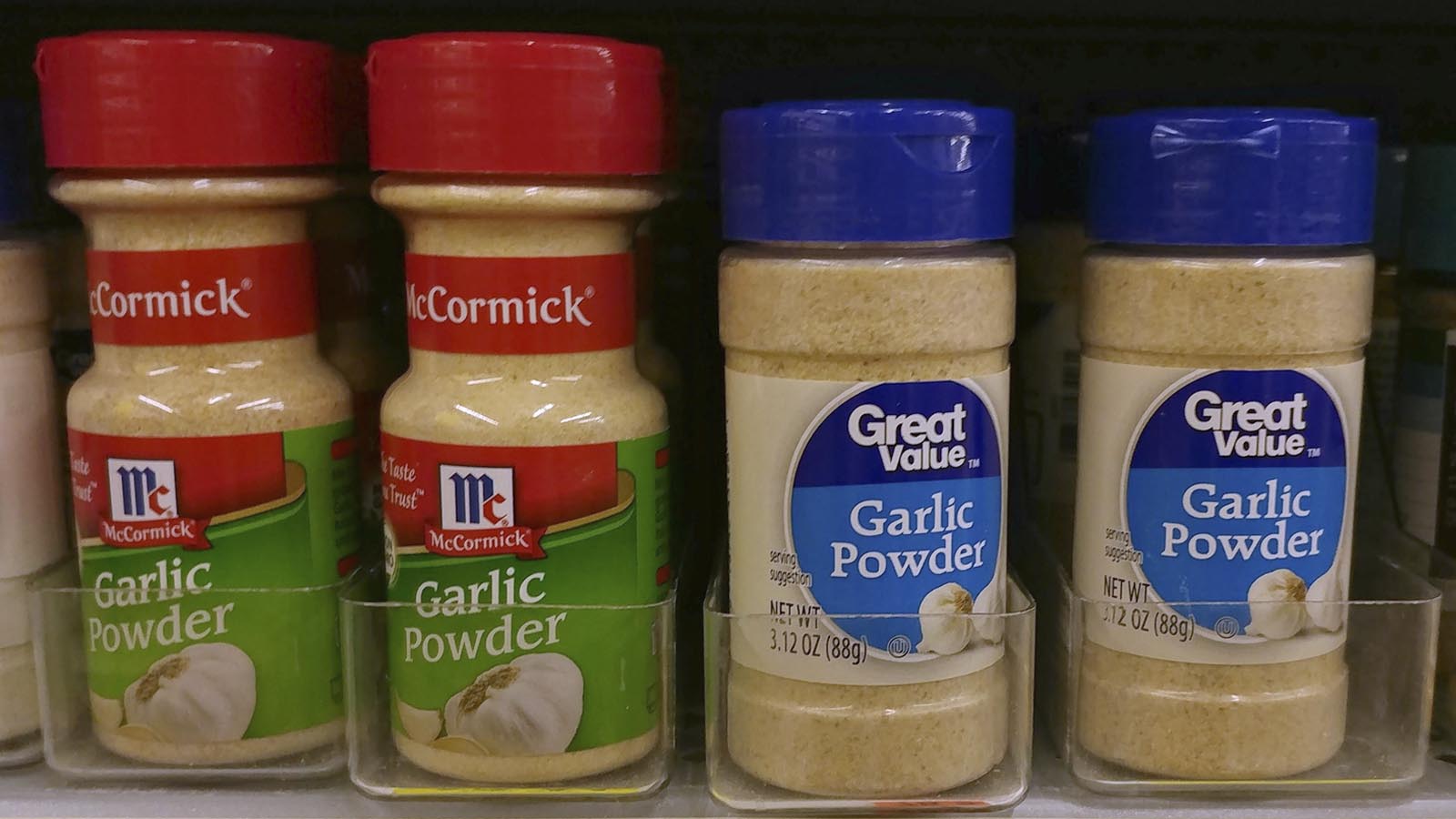Four lawsuits have been filed over the last two years over significant levels of toxic heavy metals in big brand names of herbs and spices. An analysis by Consumer Reports (CR) in 2021 detailed the problem, though big box stores continue to carry the listed brands and the U.S. Food and Drug Administration (FDA) has not yet set limits for heavy metal levels in dry herbs and spices.
The CR report, titled “Your Herbs and Spices Might Contain Arsenic, Cadmium, and Lead,” detailed an analysis of 126 individual products from national and private-label brands, such as Great Value (Walmart), La Flor Spices, McCormick & Company, Penzeys Spices, Spice Islands, and 365 by Whole Foods Market.
The analysis found that roughly one-third of the tested products (40) had “high enough levels of arsenic, lead, and cadmium combined, on average, to pose a health concern for children when regularly consumed in typical serving sizes,” with most raising concern for adults as well.
Multiple Lawsuits
McCormick & Company, Inc. was the first major brand to face a class action lawsuit after the report was made public. The suit was filed in January 2022 and Top Class Actions reported it was settled for $3 million in May of 2022.Per the suit, the defendant failed to warn consumers that some of its herbs and spices may be tainted with significant levels of toxic heavy metals.
The McCormick spices that contained problematic levels of toxic heavy metals, including lead, arsenic, and cadmium included McCormick’s Culinary Ground Basil, Ground Ginger, Ground Oregano, Paprika, Ground Thyme, and Ground Turmeric.
The lawsuit outlines that the Customer Reports analysis shows “it is possible for herb and spice companies to limit heavy metals in their products” as about “two-thirds of the spices [Consumer Reports] tested did not have concerning levels of heavy metals.” They noted that other companies such as Bolner’s Fiesta and Al Wadi Al Akhdar do perform such tests.
Moreover, the defendant would have had the knowledge that it could test for heavy metals, but did not, and it could safely remove these metals from its herbs and spices, but, again, did not. The suit claims that instead, “the defendants chose to ignore the health of the consuming public in pursuit of profit.”
McCormick, for its part, told Consumer Reports that they did in fact test products for heavy metals in their manufacturing plants.
The next class action was filed in March 2022 against Amazon.com for products under its “Happy Belly brand,” followed by a June 2022 filing against Walmart Inc. for herbs and spices sold under its “Great Value” brand.
Both suits argue that the products listed in the suit contain toxic heavy metals, including arsenic, cadmium, and lead, and the defendants neither listed the toxic heavy metals in the spices’ ingredients list nor warned consumers that they may potentially be present.
The final class action to date was filed in August 2022 against Amazon.com, Inc. and Whole Foods Market, Inc. alleging the companies failed to disclose to consumers that certain Whole Foods herbs and spices, including “365 By Whole Foods Market” basil, cumin, and ground ginger, contain lead, arsenic, and cadmium.
Health Threats and a Lack of Regulation
While the FDA is responsible for herbs and spices, the lack of a limit on heavy metals leaves consumers with no guarantee of product safety. In the CR article, Brian Ronholm, director of food policy at Consumer Reports, noted that spice companies must conduct periodic safety tests, but those are largely focused on harmful bacteria like salmonella.
Lead, arsenic, and cadmium can increase the risk of cancer, cognitive and reproductive problems, and other adverse conditions—even in small amounts. Exposure puts children at risk for lowered IQ, behavioral problems (such as attention deficit hyperactivity disorder), Type 2 diabetes, and other health issues.
According to Consumer Reports experts, in 31 products, levels of lead were so high that they exceeded the maximum amount anyone should have in a day. They caution that “just one serving—3/4 teaspoons or more—per day leaves little room for heavy metal exposure from other sources.” The non-profit had previously found high levels of heavy metals in rice, baby food, and fruit juice. Also in many recipes, spices and dry herbs are combined. Consumer Reports findings show, for example, that “a dish that has just ¼ teaspoon each of Great Value (Walmart) Chili Powder, Trader Joe’s Organic Cumin, and La Flor Oregano per serving would contain enough arsenic, cadmium, and lead to pose a concern.”
The CR analysis cited a 2018 study in Morbidity and Mortality Weekly Report that found 22 percent of food samples—mostly spices and herbal remedies—had high lead levels. The samples came from homes in North Carolina where children suffered from lead poisoning.
Avoiding Toxic Spices
Consumer Reports experts say that it is possible to limit our exposure by choosing spices carefully
CR noted that seven of the 15 types of herbs and spices, irregardless of brand, tested below thresholds for concern, meaning they were considered safe. For other herbs and spices, at least one brand landed in the “no concern” category.
Consumer Reports offered several tips to limit exposure, including using herbs and spices that were less likely to contain concerning levels of heavy metals—like pepper (black or white), garlic powder, coriander, pepper, coriander, curry powder, saffron, and sesame seeds—and seeking out the brands least likely to have high levels of heavy metals for specific spices. The brand “Simply Organic” also came through all tests without any products reaching the threshold for concerning levels of heavy metals.
Unfortunately, when it comes to herbs and spices, organic products may not be universally superior because U.S. organic standards don’t include testing for heavy metals, noted CR.
One of the safest courses of action is to grow your own herbs and spices, especially when it comes to basil, oregano, and thyme, which tested the highest for heavy metals across all brands.
Beyond limiting your exposure, another way to solve the problem goes to the source. Consumer Reports has created a petition calling on the FDA to set stricter limits on food to “protect Americans from heavy metals.” You can check out the petition here.
“We are committed to providing high-quality products and have always required that our private brand suppliers’ products meet or exceed FDA’s guidelines for naturally occurring elements that are not added during the manufacturing process. We will continue to defend the company against this litigation.”
















the U.S. Food and Drug Administration (FDA) has not yet set limits for heavy metal levels in dry herbs and spices.
So just what does the FDA do besides nothing?